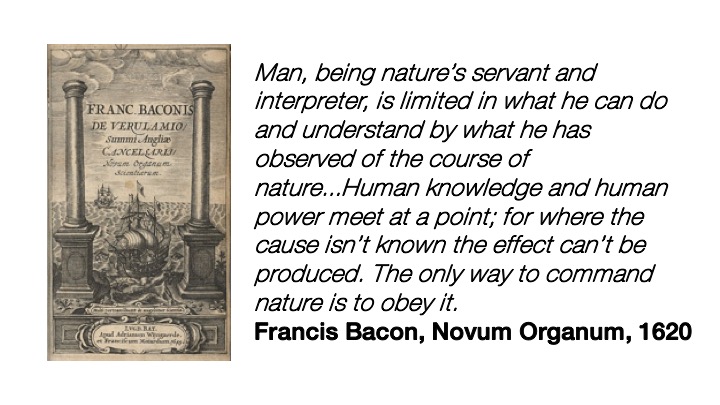Introduction

The image above depicts a sailing ship entering unchartered waters, which I can only guess is a metaphor for the vast natural world that can be explained through observation and experiment. Bacon wrote about why, when seeking knowledge about the world, we can’t rely on deduction alone: We need scientific methods, whichever ones work.
I’m no Bacon. I’m no philosopher of science. But that’s ok because that’s not what this blog is about. First, it’s about teaching psychologists—mostly SPSS users—how to use R. In the spirit of Bacon, I’d argue that social scientists can no longer rely on slow, often out-of-date, expensive statistical packages like SPSS to manipulate and analyze data in their research. Sticking to Bacon’s metaphor, SPSS helped us chart the Mediterranean, but the Atlantic is just too vast to explore without help from R and other programming languages.
We need new instruments: Novum Organum.
Second, this blog is about statistics and methods. I first read this post’s opening quote on the introductory page of Maxwell and Delaney’s Designing Experiments and Analyzing Data, which is the main text Rich Gonzalez assigns in his Advanced Statistical Methods course at the University of Michigan. Rich and this text have really inspired my own interest in methods and statistics. In fact, the UM academic community in general— both faculty and graduate students—continues to influence my opinions on these topics. Though my opinions are my own, what I write here will no doubt emerge from some of the many conversations I have with all the smart people at Michigan.
Last, my goal is to be helpful, encouraging, and polite. Blogs and social media handles can be dark and nasty things, even when they’re focused on topics as (seemingly) boring as programming and statistics. I’ll do my best to avoid what could be ugly if not polarizing and annoying.
I’m sure my theme will evolve over time, but that’s the gist for now. Thanks for reading.